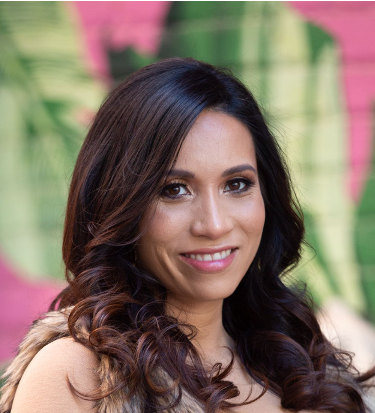
Emmanuelle Richez graduated with a PhD in Political Science in 2012. Her dissertation considered the impact of the Canadian Charter of Rights and Freedoms on cultural rights and policies in the areas of Multiculturalism, language, and Indigenous affairs. She is now an Associate Professor of Political Science at the University of Windsor.
Q: What made you interested in doing a PhD?
I was interested in teaching mostly; that’s what pushed me towards the PhD.
Q: How did you end up in your position as Associate Professor at the University of Windsor?
I had a one-year limited term appointment as an Assistant Professor at Concordia University. Then I did a one-year FRQSC (Le Fonds de recherche du Québec – Société et culture) postdoctoral fellowship. I also held a postdoctoral fellowship at the University of New South Wales in Australia, concurrently. Then I got the tenure track position at Windsor.
Q: What was your experience on the academic job market like?
It was really hard. I think the job at Windsor was my ninth application. And I interviewed at least four other times before I got this job.
Q: Did you feel prepared to teach by the time you graduated?
Yes. I would say that McGill does a better job than most universities because they offer teaching assistantships, but, also, when you become ABD (all but dissertation) they highly encourage you to teach courses. I was able to teach two courses as a lecturer. And I think that made a difference when I was applying for a job because oftentimes candidates are disqualified if they have no teaching experience. Maybe they have publications, but if they have no substantive teaching experience, they’re not considered for the position.
Q: Are there any experiences that you had during your PhD that have been valuable to you since graduating?
Yes, I would say many. We received a lot of support in political science. There was the possibility to co-author peer-reviewed articles with faculty members, which was very helpful. When we scheduled an interview for a tenure-track position, they would organize a mock interview to help us. Oftentimes, the department would pay for grad students to attend conferences and it allowed for networking with other scholars that, in turn, led to more research and publication opportunities. Our department also organized workshops on how to get published, how to network, how to interview and things like that. I thought that was really good.
Q: Did you feel that you belonged to any communities during your PhD?
I didn’t get involved in campus groups, but I would say there was definitely a sense of community within the department with graduate students and also with professors. They would always organize a Christmas party and invite the grad students to that party. It made us feel like a big family. We also had a dedicated lounge for poli-sci, so you could always go there and meet with your peers.
Q: What would you say were the biggest challenges that you faced during your PhD?
My first challenge was studying in English because I’m francophone. At first it was hard, then it got better. Finishing the thesis and finding the motivation to finish it was a bit hard because, in the end, it all depends on your personal will.
Q: Were there things that helped motivate you to finish the dissertation?
It was my personal network that really encouraged me to finish.
Q: What kinds of challenges did you have after you graduated?
The job market was difficult for sure. There weren’t a lot of jobs in my field. I had to move far from my friends and family to get a job. I wasn’t prepared to work as hard as I’m working now. I feel like my graduate years were a big vacation, compared to what I’m doing now. I just had no idea the job would be so demanding and time consuming.
I think the profession has changed a lot over the last decade.
Q: What advice would you give to someone currently working on their PhD?
I would tell them first that their dissertation doesn’t have to be perfect; it has to be done. They can always rework it later for publication. I would tell them to try to get a few publications out before graduating, to be competitive on the job market. And, also, to gain that teaching experience as a lecturer.
Many thanks to Emmanuelle for sharing her PhD narrative!
This interview took place in March 2020. Interviews are edited by the TRaCE McGill Editorial team for length and clarity before publication.






Discussion